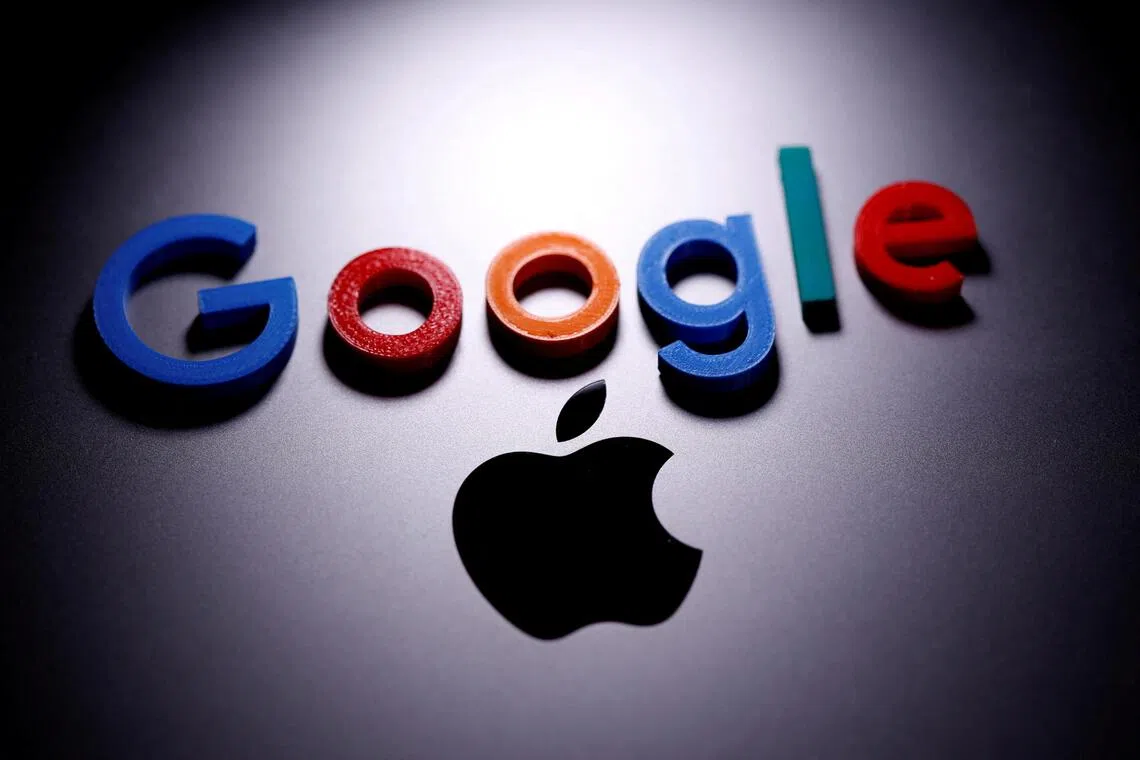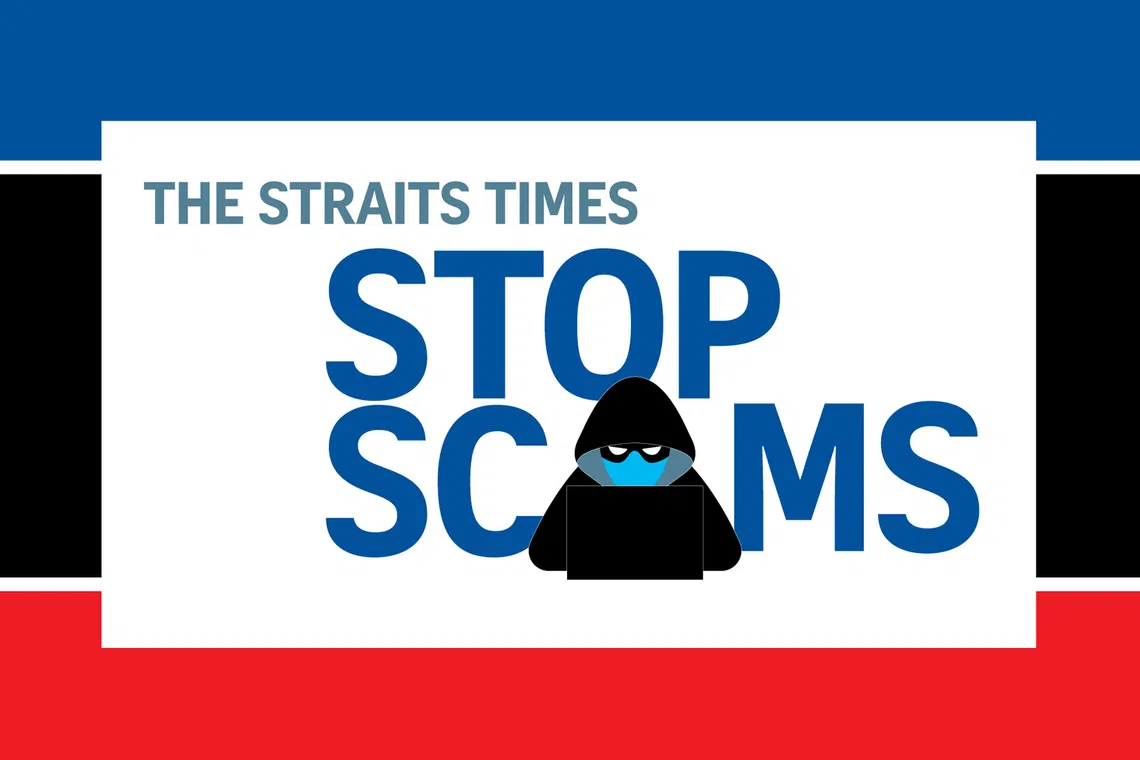Singapore orders Google, Apple to curb govt impersonation on messaging services
Sign up now: Get ST's newsletters delivered to your inbox

The tech giants have until Nov 30 to comply with the directives, said the Ministry of Home Affairs.
PHOTO: REUTERS
SINGAPORE – Tech giants Apple and Google have been directed to prohibit accounts on their messaging services from using names that spoof Singapore government agencies, in a move to protect the public from impersonation scams.
By Nov 30, Apple and Google must prevent accounts and group chats on iMessage and Google Messages from using names that spoof the “gov.sg” sender ID or other local government agencies, or they must filter out messages from such senders, said the Ministry of Home Affairs (MHA) on Nov 25.
In addition, the profile names of unknown senders must either not be displayed, or be shown less prominently than their phone numbers, which would help users better identify and exercise caution with unknown persons.
The local authorities have been using the “gov.sg” sender ID since July 2024 to help the public more easily identify legitimate government messages.
However, this does not apply to messages sent via iMessage and Google Messages. As a result, members of the public might be misled by messages from unknown senders using the “gov.sg” ID via these services, which are not easily distinguishable from regular messages, said the ministry in a statement.
As the police have seen scams involving the impersonation of other registered sender IDs – including over 120 cases of scammers impersonating SingPost – measures need to be taken to deter abuse of the two messaging services, said the authorities.
“Apple and Google have indicated that they will comply with the Implementation Directives,” said the ministry, which added that this order was issued on Nov 24 under the Online Criminal Harms Act.
The law came into force in February 2024, allowing the Government to issue directions and orders to restrict and limit the exposure of Singapore users to criminal activities on online platforms.
In September, Meta was directed to implement measures
Said MHA: “We urge the public to regularly update the iMessage and Google Messages apps on their mobile devices to ensure that the latest anti-spoofing safeguards are in place.”
Victims lost $126.5 million to government official impersonation scams in the first six months of 2025, a nearly 90 per cent increase from $67.2 million in the first half of 2024, according to mid-year statistics released by the police in August.
Such scams have almost tripled in number, with 1,762 cases reported in the first half of 2025 compared with 589 over the same period in 2024.
In response to queries from The Straits Times, a Google spokesperson said the company supports Singapore’s goal of keeping Singaporeans safe online.
“To that end, we are collaborating with the Government to implement pre-emptive measures to help prevent the spoofing of government agencies’ names in RCS messages sent via Google Messages,” said the spokesperson, adding that this builds on current features such as spam detection.
RCS, which is supported on services such as Google Messages, allows users to share high-resolution photos and have secure, end-to-end encrypted conversations.




